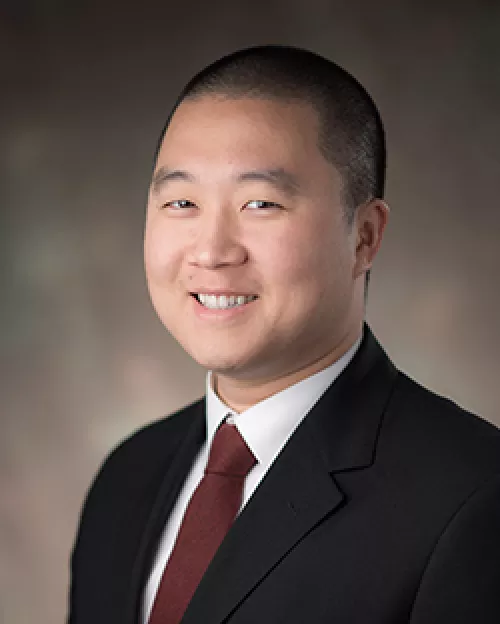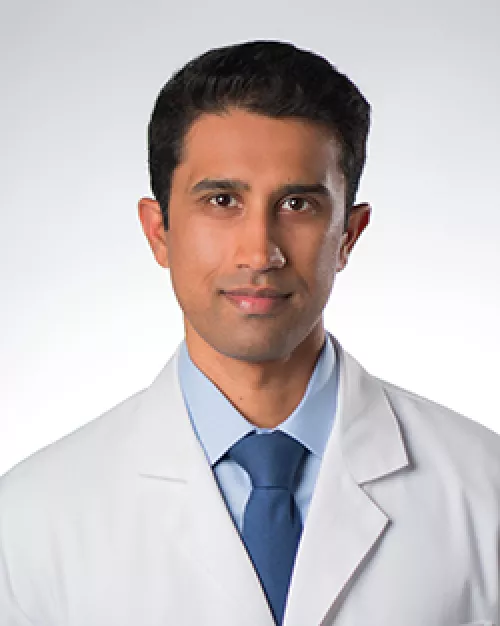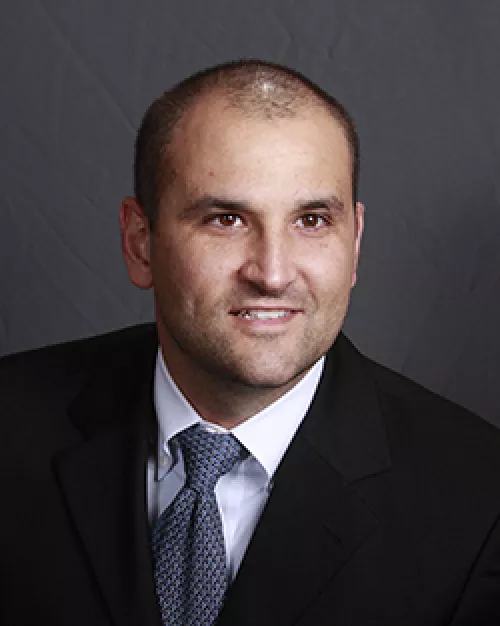This year, the UCSF Neurosurgery Residency Program congratulates our three graduates, who recently completed their seven-year training program in the department. Our graduating chief residents have already made significant impact on the field of neurosurgery – learn more about their accomplishments below.
Taemin Oh, MD
Taemin Oh, MD completed his undergraduate education at Yale University, where he majored in political science and graduated with distinction. He subsequently earned his medical degree from the David Geffen School of Medicine at UCLA. During medical school, he completed a post-doctoral research fellowship at UCSF and Northwestern University, studying mechanisms of immunosuppression in glioma and glioma immunotherapy.
During neurosurgery residency at UCSF, he developed dual interests in pediatric and spine neurosurgery. He has trained extensively with the support of the world-class UCSF pediatric and spine neurosurgery teams, working most under the mentorship of Nalin Gupta, MD PhD, Christopher Ames, MD, and Dean Chou, MD. He is a recipient of the Neurosurgery Research & Education Foundation Grant, which he utilized to study mechanisms of immune evasion in medulloblastoma under the mentorship of William Weiss, MD PhD and Manish Aghi, MD PhD. His career goal is to provide comprehensive neurosurgical care to pediatric patients, with specific emphasis on spinal pathologies such as myelomeningocele, tethered cord, Chiari malformation, cranio-cervical junction instability, and neuromuscular scoliosis.
After graduation, he will complete a Pediatric Neurosurgery fellowship at the University of Utah followed by a Pediatric Spinal Deformity fellowship at Shriners Hospital for Children in Philadelphia.
Featured Publications
Oh T, Avalos LN, Burke JF, Mummaneni N, Safaee M, Gupta N, Clark AJ. A Type II Split Cord Malformation in an Adult Patient: An Operative Case Report. Oper Neurosurg (Hagerstown). 2021 Jan 13;20(2):E148-E151. doi: 10.1093/ons/opaa334. PMID: 33294923
Raygor KP, Oh T, Hwang JY, Phelps RRL, Ghoussaini K, Wong P, Silvers R, Ostling LR, Sun PP. Ventriculoperitoneal shunt infection rates using a standard surgical technique, including topical and intraventricular vancomycin: the Children's Hospital Oakland experience. J Neurosurg Pediatr. 2020 Jul 24;26(5):504-512. doi: 10.3171/2020.4.PEDS209.PMID: 32707540
Lee YM, Lu AY, Oh T, Hwang JY, Lu DC, Sun PP. C2 translaminar screw fixation in pediatric occipitocervical fusion. Childs Nerv Syst. 2022 Apr 14. doi: 10.1007/s00381-022-05471-1. PMID: 35426055
Kunal Raygor, MD
Kunal P. Raygor, MD completed his undergraduate degree in Neurobiology at Harvard College prior to receiving his medical degree from the University of California, San Francisco School of Medicine. During medical school, he was awarded the CTSI TL1 Predoctoral Fellowship.
As a neurosurgery resident at UCSF, Kunal’s clinical focus was in skull base and cerebrovascular surgery primarily under the mentorship of Adib Abla, MD. His clinical research interests have focused on microsurgical and endovascular management of cerebrovascular pathology. He also completed an NIH-funded fellowship with Rong Wang, PhD studying novel murine models of brain arteriovenous malformations. His research has been awarded the AANS/CNS Joint Section on Pain Walter H. Sweet Young Investigator Award, the AANS/CNS Joint Section on Socioeconomics Robert Florin, MD Resident Award, as well as resident research awards through the UCSF Department of Neurological Surgery.
After residency, Kunal will complete a University at Buffalo Neurosurgery Endovascular Fellowship under the guidance of Elad Levy, MD MBA, Adnan Siddiqui, MD PhD, and Jason Davies, MD PhD.
Featured Publications
Raygor KP, Phelps RRL, Rutledge C, Raper DMS, Molinaro A, Fox CK, Gupta N, Abla AA. Socioeconomic factors associated with pediatric moyamoya disease hospitalizations: a nationwide cross-sectional study. J Neurosurg Pediatr. 2022 Mar 25; 1-10. PMID: 35334457
Hafez A*, Raygor KP*, Lawton MT. Contralateral anterior interhemispheric approach to medial frontal arteriorvenous malformations: surgical technique and results. Oper Neurosurg (Hagerstown). 2017 Aug 1; 13(4):413-420. PMID: 28838107
Raygor KP, Wang DD, Ward MM, Barbaro NM, Chang EF. Long-term pain outcomes for recurrent idiopathic trigeminal neuralgia after stereotactic radiosurgery: a prospective comparison of first-time microvascular decompression and repeat stereotactic radiosurgery. J Neurosurg. 2018 Oct 1: 1-9. PMID: 30485183
Chang EF, Raygor KP, Berger MS. Contemporary model of language organization: an overview for neurosurgeons. J Neurosurg. 2015 Feb; 122(2):250-261. PMID 25423277
John Burke, MD, PhD
John Burke, MD, PhD completed his undergraduate education at the University of Pennsylvania where he graduated summa cum laude with a degree in Electrical Engineering. He earned his medical and graduate degrees from the School of Medicine at the University of Pennsylvania. During undergraduate and medical school, he received the AOA Carolyn L. Kuckein Student Research Fellowship, and was a member of Tau Beta Pi and Eta Kappa Nu engineering honor societies. In his graduate work, his examined the neural basis of human episodic memory.
During residency he was initially interested intracranial electrophysiology but ultimately developed a focus in spinal surgery. He transitioned to spinal deformity surgery under the mentorship of Christopher Ames, MD. In residency, he was the recipient of an F32 NRSA post-doctoral National Service Award from NIH, a Catalyst grant to investigate spinal electrophysiological biomarkers of movement, the Charlie Kuntz Scholar award (twice) from the joint AANS/CNS spine section, the John Hanberry Award from the San Francisco Neurological Society, the AANS Ellen and Stewart Dunsker Award for Clinical Research, the CNS DePuy-Synthes Award for Resident Research, and the UCSF Translational Science Institute Resident Research Award. He has published over 75 peer reviewed journal articles, and his overall research focus involves using electrophysiological signals to make spinal deformity surgery safer for patients.
After graduation, he will begin a spine fellowship with Christopher Ames, MD at UCSF in spinal deformity and spinal oncology, and he has accepted a position at Oklahoma University as an Assistant Professor in spinal surgery in the Department of Neurosurgery starting in 2023.
Featured Publications
Burke, JF, Gugger J, Ding K, Kim JA, Foreman B, Yue JK, Puccio AM, Yuh EL, Sun X, Rabinowitz M, Vassar MJ, Taylor SR, Winkler EA, Deng H, McCrea M, Stein MB, Robertson CS, Levin HS, Dikmen S,...Zafonte R. Association of Posttraumatic Epilepsy With 1-Year Outcomes After Traumatic Brain Injury. JAMA Netw Open. 2021 Dec 1;4(12):e2140191. doi: 10.1001/jamanetworkopen.2021.40191. PMID: 34964854; PMCID: PMC8717106..
Burke JF, Kunwar N, Yaroshinsky MS, Louie KH, Shirvalkar P, Su P, Henry M, Pasvankas G, Poree L, Jacques L, Wang DD. Epidural Spinal Electrogram Provides Direct Spinal Recordings in Awake Human Participants. Front Hum Neurosci. 2021 Oct 26;15:721076. doi: 10.3389/fnhum.2021.721076. PMID: 34764858; PMCID: PMC8577539.
Burke JF, Chan AK, Mayer RR, Garcia JH, Pennicooke B, Mann M, Berven SH, Chou D, Mummaneni PV. Clamshell thoracotomy for en bloc resection of a 3-level thoracic chordoma: technical note and operative video. Neurosurg Focus. 2020 Sep;49(3):E16. doi: 10.3171/2020.6.FOCUS20382. PMID: 32871571.
Burke JF, Chan AK, Mummaneni V, Chou D, Lobo EP, Berger MS, Theodosopoulos PV, Mummaneni PV. Letter: The Coronavirus Disease 2019 Global Pandemic: A Neurosurgical Treatment Algorithm. Neurosurgery. 2020 Jul 1;87(1):E50-E56. doi: 10.1093/neuros/nyaa116. PMID: 32242901; PMCID: PMC7184344.



